St. Gelasius II (1118-1119) 163rd Pope
He was captured, dragged, and thrown into a dungeon.
He forgave his captor
Callixtus (1119-1124) 164th Pope
He spent much of his time suppressing lay investiture
Lay investiture was declared heretical
He had a familial connection with the kings of Germany, France, England, and Denmark. It was considered that he would be able to deal with the King on equal terms
Most bishops in Medieval Europe were also feudal lords. These prelates owed their lands and fealty to the emperor or the kings
Temporal authorities sought control over the spiritual side of the bishops’ office as well
An agreement was reached. The king would invest the bishops as their feudal overlord, with lands of the diocese. But the ring and mitre, spiritual authority would be given by the Church
The papacy emerged as the victor in this dispute. The weakening of the stature of the imperial office contributed to instability in Italy and Germany
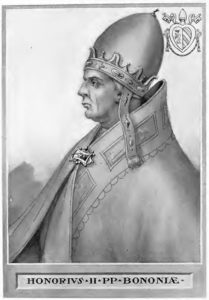
Honorius II (1124-1130) 165th Pope
He reconciled the king to the Church
He abdicated his office because of a schism among the cardinals
The king of England was nibbling away at the Church’s rights. The king stated that archbishop of Cantuerbury was the only papal legate in the realm
He renewed friendly relations with the European courts

Innocent II (1130-1143) 166th Pope
He was forced to flee Rome
Along with three saintly supporters, he conquered the Catholic world
Anacletus II was chosen as antipope by other opposing cardinals. The antipope plundered churches. Anacletus II crowned a Norman duke as a king of Italy. Anacletus II’s sucessor was Victor IV. Victor IV eventually submitted to Innocent II
Celestine II (1143-1144) 167th Pope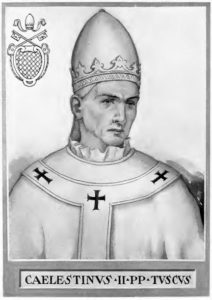
He had a great love of France
He earned a reputation of holiness
He settled the internal differences of the Church
He tried to end the war between England and Scotland
Lucius II (1144-1145) 168th Pope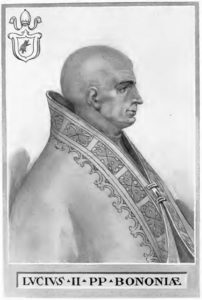
He was librarian and chancellor of the Church
He intervened in a number of foreign questions
Rome independent Senate was demanding that clergy cease to occupy any political role
He decided to lead his own army against the Senate
This time begins the end of the Middle Ages
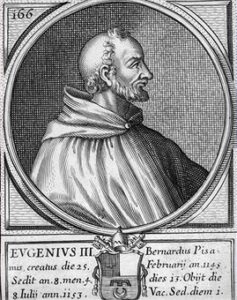
Blessed Eugene III (1145-1153) 169th Pope
Various Crusader stronghold had fallen to the Muslims
He called for the second Crusade
The leadership of the Senate revolutions proclaimed the city’s second republic
He convened as synod to combat clerical corruption
He signed a treaty with the emperor, binding the empire to protect the papacy
He began construction of the Papal Palace
Anastasius IV (1153-1154) 170th Pope
The Pantheon was restored
He was much concerned with German affairs
He wrote a treatise on the Trinity
He succeeded in bringing about the pacification of temporal domains of the Church
Adrian IV (1154-1159) 171st Pope
He is the only Englishman to hold the papal throne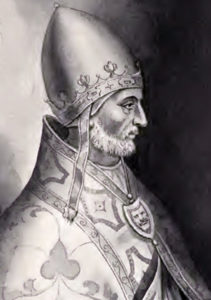
He was called the Apostle of the North
The Roman republicans were in control of Rome. The robber barons were plundering where they could
The western emperor deserted the pope in a battle. The eastern emperor came to the pope’s aid
Ireland was ruled by many kings, breaking down into endemic warfare.
He made King Henry II of England “lord” of Ireland in hopes of imposing order to bring peace. This resulted in an invasion of Ireland by the Anglo-Normans and the beginning of the troubles that continue to this day
He was a strenuous defender of papal supremacy
Alexander III (1159-1181) 172nd Pope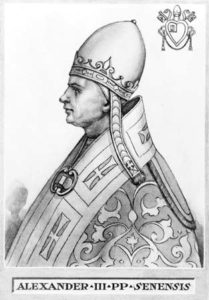
The first great European university was in the process of developing
He was the leader of the “independence” party of the cardinals who wanted to free the papacy from imperial influence through the Norman alliance
He was driven out of Rome after being chosen as pope
An antipope (Victor IV) was chosen by a small number of cardinals
He convened a council limiting the vote for pope to 2/3 or more of the cardinals
He encouraged growth of the new university movement, whereby scholars concentrate with teachers in a given town.
Lucius III (1181-1185) 173rd Pope
The republican were making life difficult for him
He convened a synod condemning the resurgent heresy Manicheanism
The papacy had been able to exert some independence from the emperor through the alliance with the Normans. This would soon come to an end with the upcoming betrothal of Norman heiress and the emperor
He exhorted all those in authority to suppress heresy by force of arms
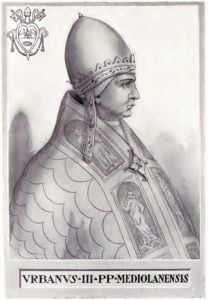
Urban III (1185-1187) 174th Pope
The cardinals quickly selected him as to prevent the emperor from interfering in this process
The Tuscan and Norman estates were claimed by the emperor
Gregory VIII (1187) 175th Pope
The Muslims had retaken Jerusalem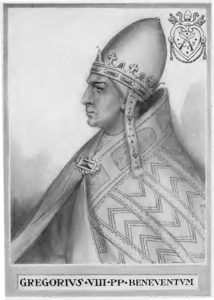
All of the petty squabbles of Christendom, for the moment, receded into the background. All Christendom became aware of the setback it had sustained
He investigated the murder of St. Thomas Becket
He assisted the Christians in the Holy Land
He sent letters to all kings, princes in Europe to make peace

Clement III (1187-1191) 176th Pope
He organized the third Crusade
Celestine III (1191-1198) 177th Pope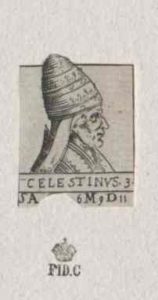
He was elected at age 85
He granted many privileges to Templars
He sustained the indissolubility of marriage
Innocent III (1198-1216) 178th Pope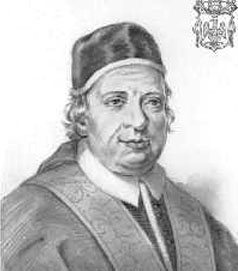
When elected pope, he secured the Papal State
In Germany, two candidates for emperor appeared
He declared that imperial coronation gives the pope the right to rule upon the suitability of the candidate
He acted in the affairs of many nations
He preached a Crusade against the Spanish Muslims
His greatest interest was the healing of the Eastern Schism and recovery of the Holy Land
The fourth Crusade was to attack Constantinople. Horrible sacrileges occurred which the Greeks have never forgiven
A Latin emperor and patriarch were installed
Byzantium princes fled, harboring bitter hatred toward the Latins
Relics from the East were taken to pay for the funds of the Crusade
In southern France some believed a heresy that matter was evil, created by an evil god. By contrast, the good god created spirit. This good god was the object of Albigense worship (Albgensinism)
He went missionaries to convert the Albigenses
He convened a council with needed disciplinary decrees, a call for a new Crusade, an new creed.
This council helped defined the term transubstantiation. This term is perhaps the greatest legacy of Innocent’s pontificate
He was all too aware of the decline in the quality and apostolic character of the clergy
He recognized a dream of his as a sign to approve a new order, the Franciscans
He also approved the Dominican order and the Trinitarians
The Fransicans maintained as special devotion to poverty and evangelization
The Dominicans had a special devotion to skilled preaching
The Trinitarians raised money to pay for ransoms and substituted themselves for those captured
He authorized the sending missionaries to Prussia
He help established the institution of the modern hospital, of which he founded in Rome. The notion of putting a number of doctors under one roof, with the poor paying little or nothing for their services, was quite revolutionary at the time
He reestablished the temporal authority within the papal states
